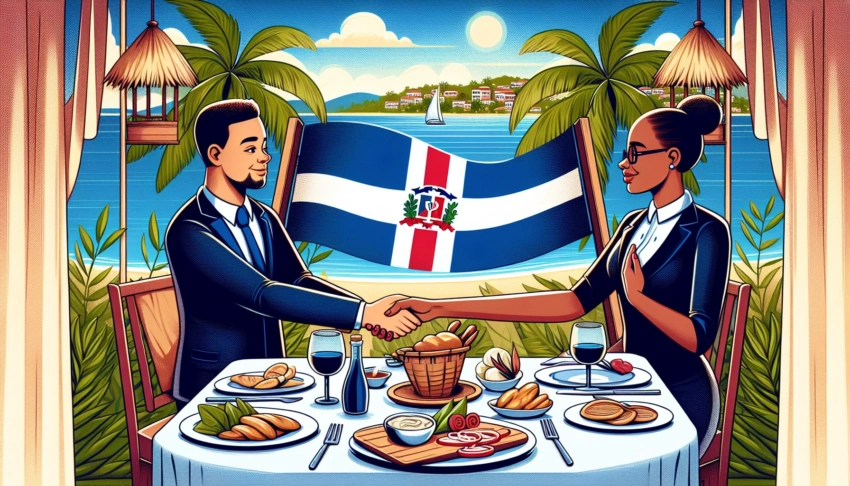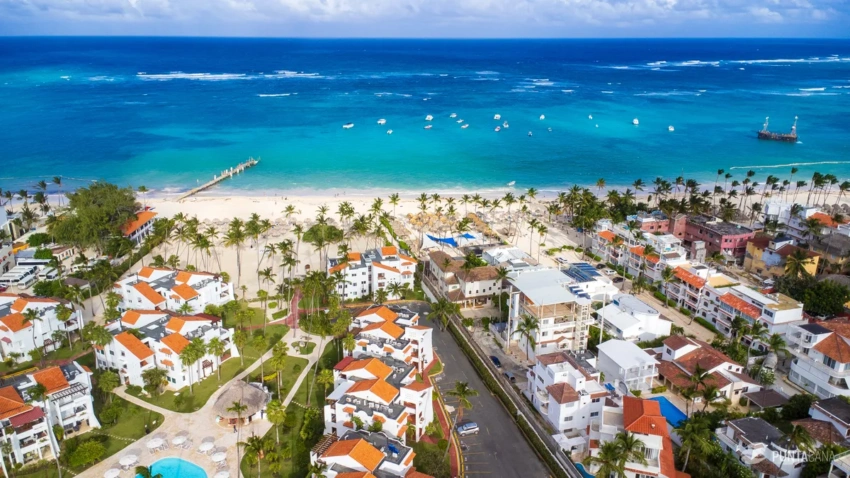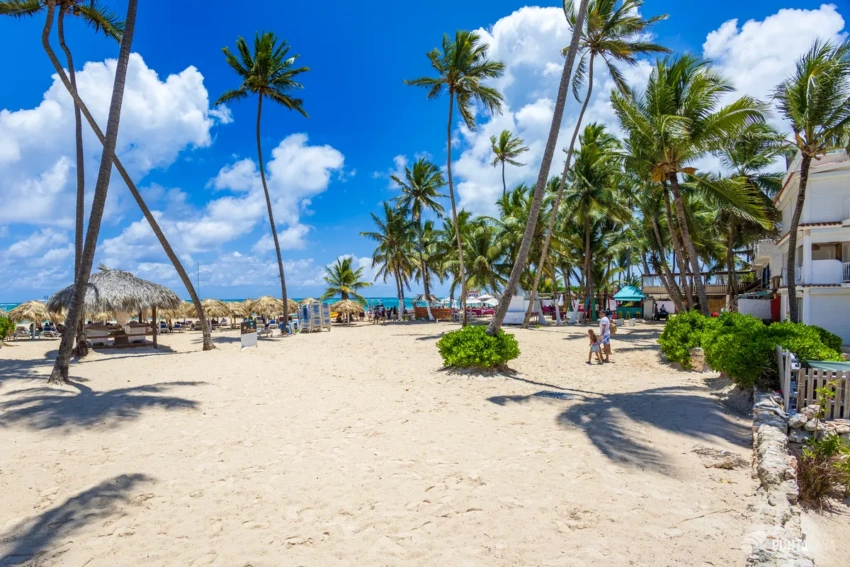Overcoming Cultural Missteps: Etiquette Basics for U.S. Travelers Visiting the Dominican Republic
Understanding Dominican Culture

Overcoming Cultural Missteps: Etiquette Basics for U.S. Travelers Visiting the Dominican Republic
The Dominican Republic is a tapestry woven from a rich array of cultural influences, deeply rooted in its historical past and vibrant present. Understanding these elements can significantly enhance your travel experience and help you navigate cultural nuances with grace and respect.
1. Historical Influences
The Dominican Republic’s culture is a fascinating blend of Taino, African, and European (primarily Spanish) influences, each contributing to the nation’s unique identity. The Taino people, who were the original inhabitants, left a legacy visible in the country’s language, food, and crafts. Words such as “canoa” (canoe) and “hamaca” (hammock) are remnants of the Taino language.
The arrival of Christopher Columbus in 1492 marked the beginning of Spanish colonization, which significantly shaped the island’s cultural landscape. The Spaniards introduced Catholicism, the Spanish language, and European architectural styles, all of which play pivotal roles in contemporary Dominican culture. This historical intermingling has resulted in a society where Spanish colonial architecture stands alongside vibrant African rhythms and Taino traditions.
Historical Influences on Dominican Culture
| Influence | Contribution | Examples |
|---|---|---|
| Taino | Language, crafts, agriculture | Words like “canoa,” traditional crafts |
| Spanish | Religion, language, architecture | Catholicism, Spanish language, colonial buildings |
| African | Music, dance, culinary arts | Merengue, bachata, sancocho |
2. The Role of Family
Family is the cornerstone of Dominican society, functioning as the primary unit of social organization. It is not uncommon for extended families to live in close proximity or even under the same roof, a testament to the strong familial bonds cherished in this culture. The concept of “familismo” underscores the importance of family loyalty, support, and unity.
In the Dominican Republic, social gatherings and celebrations often revolve around family events such as birthdays, baptisms, and weddings. These occasions are vibrant, lively, and filled with music, dance, and food, reflecting the joyful spirit and warmth of the Dominican people. Understanding the centrality of family can help travelers appreciate the social dynamics and hospitality they might experience during their visit.
3. Religious Significance
Religion holds a vital place in the daily lives of Dominicans, with Roman Catholicism being the predominant faith. This religious influence is evident in various cultural aspects, from national holidays and festivals to the architectural grandeur of churches scattered across the island. Notable celebrations such as Easter’s “Semana Santa” (Holy Week) are marked by processions and rituals that attract both locals and tourists.
However, the Dominican Republic is also home to other religious practices, including Protestantism and syncretic religions that blend African and Christian elements. These diverse expressions of faith illustrate the country’s cultural richness and the role religion plays in shaping social customs and traditions.
Immersing yourself in the cultural history and understanding the deep-rooted traditions of the Dominican Republic will enrich your journey and foster meaningful connections with the local people. As you explore this beautiful nation, let respect and curiosity guide your interactions.
Social Etiquette and Manners
Immersing yourself in the vibrant culture of the Dominican Republic requires more than just an appreciation of its beauty; it necessitates an understanding of its social norms and etiquette. Mastering these cultural nuances can transform your visit from a mere vacation to a deeply enriching experience.

Punta Cana
1. Greetings and Introductions
In the Dominican Republic, greetings are more than a formality; they are a fundamental part of social interaction. When meeting someone, a warm handshake, accompanied by direct eye contact, is customary. Among friends and family, a cheek-to-cheek kiss is common, often accompanied by a hug.
When addressing someone, using formal titles like “Señor” or “Señora” followed by the last name is considered respectful, especially if you are meeting them for the first time. This formality shows respect and acknowledges the social hierarchy that is often observed in Dominican culture.
Comparison of Greeting Styles
| Context | Common Practice | Considerations |
|---|---|---|
| Formal Meetings | Handshake with eye contact | Use formal titles |
| Informal Meetings | Cheek-to-cheek kiss | Common among friends and family |
| Business Settings | Handshake | Firm grip is appreciated |
2. Dining Etiquette
Dining in the Dominican Republic is a communal affair, rooted in the tradition of bringing people together. Meals are seen as an opportunity to connect and share, rather than just a time to eat.
As a guest, punctuality is appreciated, though a small delay is often acceptable. When invited to someone’s home, it’s customary to bring a small gift, such as wine or dessert. Once seated, it’s polite to wait for the host to signal the start of the meal, usually with a simple “Buen provecho,” which translates to “enjoy your meal.”
When dining, keep in mind that finishing everything on your plate is considered a compliment to the cook, but leaving a small amount is also acceptable and doesn’t offend. Engaging in lively conversation is encouraged, as Dominicans value joyful and spirited interactions.
3. Gift Giving Traditions
Gift giving in the Dominican Republic is a cherished tradition, reflecting generosity and thoughtfulness. Whether you’re visiting someone’s home or attending a celebration, understanding the nuances of gift giving can enhance your social interactions.
When choosing a gift, consider the preferences of your host. Flowers, chocolates, or a bottle of rum are popular choices. However, avoid using black or purple wrapping paper, as these colors are associated with mourning. Instead, opt for bright, cheerful colors that reflect the vibrant Dominican spirit.
When presenting a gift, it’s customary to do so with both hands as a sign of respect. Additionally, gifts are often opened in the presence of the giver, allowing for immediate expressions of gratitude and appreciation. This exchange reinforces the bonds of friendship and social connection, a cornerstone of Dominican culture.
Our Best Villa Rentals in Punta Cana
To truly embrace the Dominican lifestyle, consider staying in one of our luxurious villas in Punta Cana. These villas offer a unique blend of comfort and cultural immersion, providing an ideal base for exploring the local traditions and hospitality.

Villa Agapi (Caleton Estates 57) - The Most Beautiful Ocean View Villa in Cap Cana
from $2850 night Read more
Exclusive Ocean View 5-Star Cap Cana Villa for Rent - Chef, Butler, Maid & Golf Cart
from $4600 night Read more
Private Villa at Puntacana Resort & Club for Rent - Pool, Jacuzzi, BBQ, Maid, Cinema Room
from $1569 night Read more
Modern & Stylish 4-BR Family-Friendly Villa Rental in a Quiet and Gated Community in Bávaro, Punta Cana
from $189 night Read moreUnderstanding and respecting Dominican social etiquette is not just about avoiding cultural missteps; it’s about embracing a way of life that values connection, warmth, and hospitality. By following these guidelines, you’ll not only enrich your travel experience but also forge meaningful connections with the people you meet along the way.
Dress Code and Personal Presentation
When visiting the Dominican Republic, understanding the cultural norms around dress and personal presentation is key to blending in and showing respect for local customs. This section will guide you through the expectations surrounding attire and grooming, ensuring you make a positive impression.
1. Appropriate Attire for Different Occasions
In the Dominican Republic, attire varies significantly based on the occasion, with a strong emphasis on looking polished and well-dressed in public settings. For formal events such as weddings or business meetings, men typically wear suits or dress shirts with slacks, while women opt for elegant dresses or tailored ensembles. It’s essential to lean towards conservative styles, especially in religious settings, where modesty is valued.
For more casual gatherings, such as family dinners or casual outings, smart-casual is the norm. Men can wear collared shirts with chinos or neat jeans, while women might choose a blouse with a skirt or pants. Always err on the side of being slightly overdressed than underdressed, as it reflects respect for the host and the event.
2. Beachwear and Casual Dress

Punta Cana
The tropical climate of the Dominican Republic makes it a popular beach destination, but it’s important to remember that beachwear is strictly for the beach. Swimwear is acceptable on the sands or by the pool, but when venturing into public areas like restaurants or shops, cover-ups are required. Men should wear a shirt and women a sundress or sarong when leaving the beach area.
In casual settings away from the beach, the dress code leans towards lightweight, breathable fabrics to stay comfortable in the heat. However, even in casual scenarios, Dominicans tend to maintain a neat appearance, so avoid overly worn or tattered clothing.
3. Personal Grooming Standards
Personal grooming holds significant importance in Dominican culture. A well-groomed appearance is seen as a sign of self-respect and respect for others. This means that both men and women should pay attention to their hair, nails, and overall cleanliness. Hair is often styled neatly, and regular grooming is common practice among both genders.
Cologne and perfume are widely used, but it’s advisable to opt for subtle scents, especially in crowded or enclosed spaces. Additionally, accessories should be tasteful and not overly flashy, aligning with the overall polished look that is appreciated in the Dominican Republic.
Appropriate Attire for Various Settings
| Event | Men’s Attire | Women’s Attire | Notes |
|---|---|---|---|
| Formal Events | Suits, Dress Shirts | Elegant Dresses, Tailored Ensembles | Conservative and modest |
| Casual Outings | Collared Shirts, Chinos | Blouses, Skirts or Pants | Smart-casual is preferred |
| Beach | Swimwear with Cover-ups | Swimwear with Sundresses | Cover up when not on the beach |
By adhering to these dress codes and grooming standards, you will not only respect the local customs but also enjoy a richer and more harmonious experience during your visit to the Dominican Republic.
Communication Styles
Effective communication can make or break your travel experience, especially in a culturally rich country like the Dominican Republic. Understanding local communication styles can significantly enhance your interactions and foster meaningful connections.
1. Verbal Communication
In the Dominican Republic, verbal communication often carries a warm and personable tone. Dominicans are known for their hospitality and friendliness, which is reflected in their conversational style. Conversations are usually lively and full of expression, and it’s common for Dominicans to engage in extended dialogues.
To fit in seamlessly, it’s crucial to adopt a friendly and open demeanor. Address individuals using formal titles such as Señor or Señora unless invited to use first names. This shows respect and is appreciated by locals.
Common Verbal Expressions
| Expression | Translation | Usage |
|---|---|---|
| ¿Cómo estás? | How are you? | Informal greeting |
| Mucho gusto | Nice to meet you | Upon meeting someone for the first time |
| Gracias | Thank you | To express gratitude |
| Por favor | Please | To make polite requests |
2. Non-Verbal Cues
Non-verbal communication plays a significant role in Dominican culture. Gestures, eye contact, and facial expressions are integral to conveying messages. For example, making direct eye contact is seen as a sign of confidence and sincerity, while smiling is commonplace and conveys friendliness and approachability.
When greeting someone, a light handshake accompanied by a smile is customary. For those familiar with each other, a light kiss on the cheek is a common greeting among women and between men and women.
3. Handling Misunderstandings
Communication barriers are inevitable when traveling to a country where the language and culture differ from your own. Misunderstandings can occur, but handling them with grace and patience is key. If you find yourself in a situation where communication breaks down, consider these strategies:
- Stay Calm and Polite: A calm demeanor helps maintain a positive atmosphere. Avoid raising your voice, as it may be perceived as aggression.
- Use Simple Language: Simplify your vocabulary and speak slowly. This aids in clarity and understanding.
- Leverage Technology: Utilize translation apps or phrasebooks to bridge language gaps.
- Rely on Non-Verbal Communication: Use gestures or drawings to aid understanding when words fail.
By recognizing and adjusting to the communication styles prevalent in the Dominican Republic, you not only avoid cultural missteps but also enrich your travel experience. Embrace the opportunity to learn and grow from these interactions.
Navigating Social Gatherings
Attending social events in the Dominican Republic can be a vibrant and enriching experience, offering travelers an opportunity to immerse themselves in local culture and traditions. Understanding the social nuances can enhance these experiences significantly.

Punta Cana
1. Party and Celebration Etiquette
Parties and celebrations in the Dominican Republic are lively affairs filled with music, dance, and joyful interactions. Understanding the do’s and don’ts can help you blend in seamlessly.
- Arrive fashionably late: It is common to arrive at parties at least 30 minutes after the stated start time. This is considered polite and gives the host time to prepare.
- Bring a gift: It is customary to bring a small gift, such as a bottle of wine or dessert, as a token of appreciation for the host.
- Join the dance: Music and dancing are integral to Dominican celebrations. Don’t be shy—join in and enjoy the rhythms of merengue or bachata.
2. Respect for Local Customs
Respecting local customs is crucial when attending social gatherings, as it reflects your appreciation for the host culture.
- Understand hospitality: Dominicans are known for their warm hospitality. Accept offers of food and drink graciously, as refusing can be seen as impolite.
- Observe religious practices: If the gathering involves a religious component, such as a prayer or blessing, participating respectfully and quietly is advised.
3. Engaging in Conversations
Conversations at social gatherings can be a delightful way to connect with locals. Here are some tips to keep in mind:
- Start with a warm greeting: Begin conversations with a friendly greeting and a smile. A handshake or a cheek kiss may follow, depending on the familiarity.
- Be open-minded: Show interest in learning about the local lifestyle and traditions. Asking questions about these topics can lead to engaging conversations.
- Avoid controversial topics: As with any cultural setting, it is advisable to steer clear of sensitive subjects such as politics and religion unless you know the audience well.
By fully embracing the culture and etiquette of social gatherings in the Dominican Republic, you can foster meaningful connections and have a memorable experience. These tips will equip you to participate confidently and respectfully.
Respect for the Environment and Local Communities
Traveling responsibly means more than just visiting beautiful places; it involves respecting the environment and the communities that call these destinations home. In the Dominican Republic, being a conscientious traveler can greatly enhance your experience and foster positive relationships with locals. This section provides insights on how to minimize your impact and support the local way of life.

Punta Cana
1. Sustainable Tourism Practices
Environmental sustainability is crucial for preserving the natural beauty of the Dominican Republic. From its pristine beaches to lush rainforests, the country’s ecosystems are both delicate and integral to its appeal.
When visiting, consider participating in eco-friendly tours that emphasize conservation and education. Choose accommodations that implement sustainable practices, such as reducing waste, conserving water, and using renewable energy sources. Many resorts now offer programs that allow guests to engage in beach clean-ups or tree planting activities, providing a hands-on way to contribute to the environment.
Travelers can also reduce their carbon footprint by opting for public transportation, cycling, or walking when possible. This not only helps the environment but also offers a closer look at the local culture and lifestyle.
2. Supporting Local Businesses
Embracing local businesses is a direct way to contribute to the Dominican economy and support the livelihoods of its people. Favoring small, locally-owned establishments over international chains ensures that your spending benefits the community directly.
Seek out local eateries to enjoy authentic Dominican cuisine, which not only supports local chefs and farmers but also provides a genuine taste of the country’s culinary heritage. Purchasing souvenirs from local artisans rather than mass-produced items shows appreciation for the craftsmanship and traditions unique to the region.
Comparing Local vs. International Purchases
| Purchase Type | Local Impact | Economic Contribution | Cultural Experience |
|---|---|---|---|
| Local Restaurants | High | Significant | Authentic |
| International Chains | Low | Minimal | Standardized |
| Handmade Souvenirs | High | Significant | Unique |
| Mass-Produced Items | Low | Minimal | Common |
3. Cultural Sensitivity
Understanding and respecting cultural differences is essential for avoiding missteps and fostering goodwill during your travels. The Dominican Republic is a diverse nation with a rich blend of cultural influences.
Travelers should educate themselves about local customs and traditions before arriving. Simple gestures, such as learning basic Spanish phrases or understanding local etiquette, can go a long way in showing respect. For example, addressing individuals with formal titles and being respectful of religious practices demonstrate an awareness of cultural norms.
Engage with locals and listen to their stories and perspectives. This not only enriches your travel experience but also helps bridge cultural gaps and fosters mutual respect and understanding.
By embracing sustainable practices, supporting local enterprises, and demonstrating cultural sensitivity, you can significantly enhance your travel experience in the Dominican Republic. These efforts not only preserve the environment and support local communities but also pave the way for meaningful and memorable interactions with the people and culture of this vibrant nation.
Frequently Asked Questions
What are some common cultural etiquette tips for U.S. travelers in the Dominican Republic?
When visiting the Dominican Republic, it’s important to greet people with a friendly attitude. A handshake is common, and using first names as a sign of friendliness is appreciated. Punctuality is not as rigid as in the U.S., so be prepared for some flexibility in meeting times.
How should I dress when visiting the Dominican Republic?
Dress in the Dominican Republic is generally casual, but neat clothing is expected in urban areas. Beachwear should be reserved for the beach. In religious settings, modesty is important, so cover your shoulders and knees.
Is it customary to tip in the Dominican Republic?
Tipping is customary in the Dominican Republic. In restaurants, a service charge of 10% is often included in the bill, but it’s common to leave an additional 5-10% for good service. Tipping taxi drivers, hotel staff, and tour guides is also appreciated.
Are there any specific gestures I should avoid?
Avoid using the “OK” hand gesture, as it can be considered offensive. Also, pointing with your finger is seen as impolite, so use your whole hand to gesture instead.
How can I show respect to the local culture?
Taking the time to learn a few basic phrases in Spanish can go a long way. Demonstrating an interest in the local culture, cuisine, and traditions shows respect and can enhance your experience.
Remember to be open-minded and patient as you immerse yourself in a different culture.
What should I know about dining etiquette in the Dominican Republic?
When dining with others, wait for the host to invite you to start eating. It’s polite to try everything offered and compliment the food. Keep your hands visible on the table, but don’t rest your elbows on it.
Is bargaining acceptable in local markets?
Bargaining is common in local markets, especially for souvenirs. It’s part of the shopping experience, but always remain polite and respectful during the negotiation process.
How should I approach conversations about sensitive topics?
Avoid discussing sensitive topics such as politics or religion unless you are familiar with the views of those you’re speaking with. Focus on neutral topics like family, food, or cultural experiences.
What should I be aware of when visiting religious sites?
When visiting religious sites, dress modestly and be respectful of local customs and practices. It’s important to remain quiet and avoid taking photos without permission, as this can be considered disrespectful.
